Since Metro 2033 is one of my favourite games I have been wanting to play Last Light. I am not quite sure why I have not pulled the trigger and picked it up.
Metro: Last Light Review
|
|
See PixlBit's Review Policies

On 05/29/2013 at 12:05 PM by Daniel Iverson Light at the end of the tunnel. |

Do you enjoy any combination of story-driven action, first-person shooter, horror, or stealth games? Then don't miss this one.
Metro: Last Light's first achievement may be the fact it exists. As a sequel to an atmospheric first-person shooter adapted from Russian literature, it was already a risky game before development even started. Bad working conditions, delayed release, and THQ's bankruptcy followed. Yet despite everything going against it, Last Light has emerged from the darkness to become one of the year's best games so far.
Except for its own predecessor, no other game is quite like Last Light. It's a unique blend of genres and emotions. It isn't primarily an action game, but it’s exciting. It isn’t primarily horror, but it’s scary. It isn’t primarily stealth, but it’s tense.
The story continues from the "bad" ending of Metro 2033, although to consider any ending particularly "good" would be a bit of a stretch. Regardless, the people of Moscow are still forced to live underground due to the nuclear attack the original game is based on. Factions of the Metro are fighting to control a cache of valuable resources (i.e., weapons), each with different intentions for how to use them. Protagonist Artyom, now a member of the elite Ranger squad, becomes wrapped up in the conflict while searching for the last of a race called the Dark Ones.
The Metro's denizens are well rounded. Far from being one-dimensional victims, their lives continue despite their circumstances. Things you witness while passing by, such as children playing with shadow puppets or friends shooting the breeze over a beer, add an extra layer of reality to the game world. Ironically these random people are often more interesting characters than the supporting cast—a simultaneous success and failure for the writers.
Creative assets are wholly outstanding, best experienced with headphones on and lights off. The naturally brown and gray setting would be easy to screw up with bland design, but the game’s art direction and graphics are anything but dull. The Metro is highly detailed and lighting effects are especially strong. Meanwhile, the surface is awe-inspiring with its apocalyptic skyline and perpetually overcast skies. Sound design adds to the creepy atmosphere and provides cues to help you survive. Music is usually appropriate for the situation, although one track caused me undue stress because the volume would always spike while I was sneaking and made me think I got caught when I was actually fine.
The setting is highly immersive and used well, both for story and gameplay purposes. Metro life isn't easy! From the environment itself to the mutated animals and Fourth Reich Nazis, almost everything you encounter is probably going to try to kill you. Ammunition is scarce, and it's both a defensive resource and the Metro's currency. The air above and below the ground is often toxic, which requires wearing a gas mask and replacing filters every five or so minutes. Fighting may cause the mask to crack and break or be splattered with blood. Your flashlight battery may die, requiring you to charge it up again. And you thought the New York City Subway was bad.
Last Light is a linear game, but can you really blame it? It's about tunnels. Although you're ushered from one location to another, each destination usually opens up with at least a few different paths and places to hide while skulking around. Perhaps more importantly, you've got options for how to approach enemies: with stealth or face-to-face. My strategy, whether intentional or otherwise, was a little of both: sneak until I'm discovered, then finish the job by shooting everything I see.
Stealth is simplistic, but it's also well balanced. Although Artyom can't see around the corner or hide evidence, disabling light sources is a core mechanic that gives plenty of chances for strategizing. By and large, human enemies are oblivious. They're often found standing alone, apparently fascinated with the wall and impaired with awful hearing and peripheral vision. As a casual stealth fan, however, I prefer oblivious to hypersensitive. I also appreciate being able to recover from a mistake. Being discovered isn't automatically a death sentence, which is something I hate about a lot of stealth titles. That said, enemy placement and patrol routes still provide a healthy challenge. I was discovered often enough to be paranoid but rarely enough to believe the game was being unreasonable.
Artyom can buy weapons from the stations he encounters or scavenge for them, options I found more contradictory than complementary. The game teaches you to be resourceful, so why spend the bullets to buy a gun you could easily stumble upon a few steps outside the station? Regardless of how you obtain the weapon, guns may be customized with a simple upgrade system. I often chose a silenced pistol with a sight for human targets and a shotgun for mutants because its short range and stopping power are best against their ambushes.
A hidden morality system, like Metro 2033, impacts the ending you receive. Actions speak louder than words, and the game evaluates you based on the things you actually do instead of your responses to multiple-choice questions.
Last Light is a conservative sequel, but while the core experience is largely unchanged from its forerunner, improvements which may be small individually add up to produce a clearly more refined game. It isn’t perfect, but none of its flaws caused me to enjoy it any less because it’s strong enough as a whole to absorb them. Congratulations to 4A Games for delivering a sequel which, like Artyom, weathered frequent threats of untimely demise and prevailed.
Deep Silver provided the PC version for review. Optimum settings call for an i7 and a TITAN, but my system is a lot more conservative. The game ran smoothly on medium settings with my i5 and GTX 550 Ti. The graphics were still fantastic, and the frame rate rarely dropped.


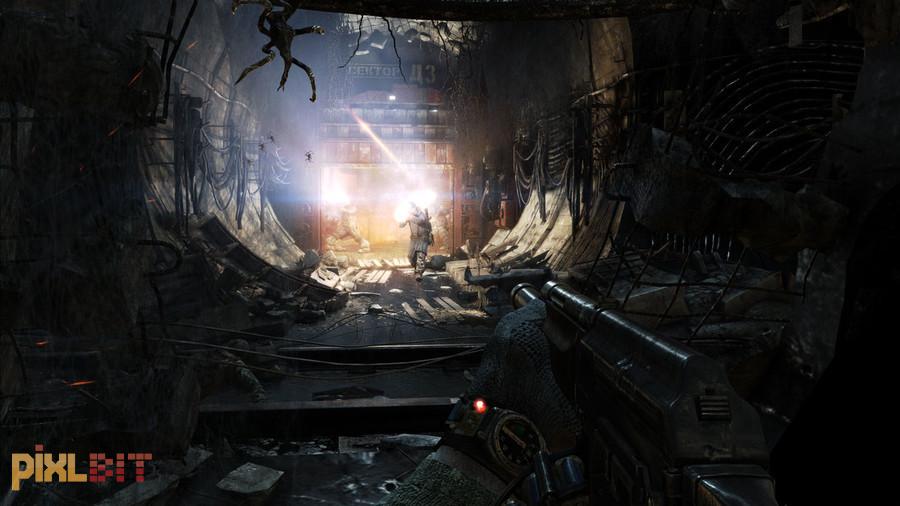
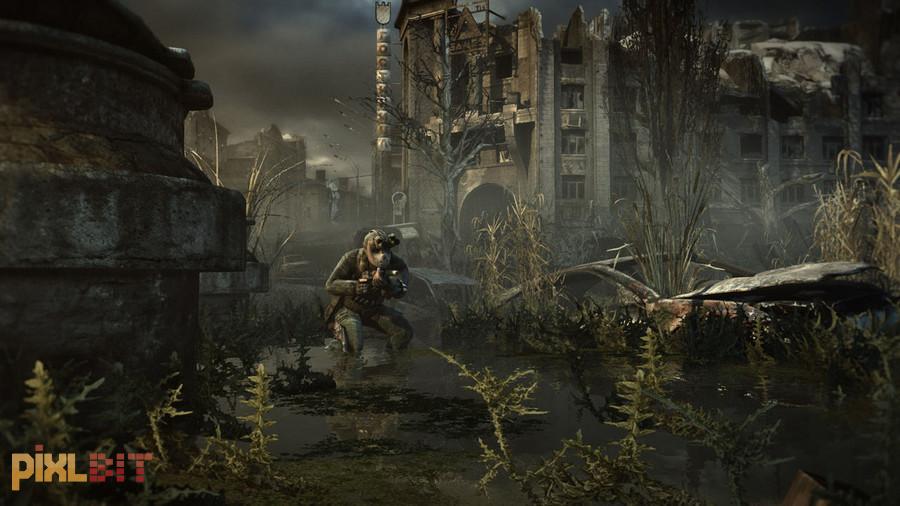
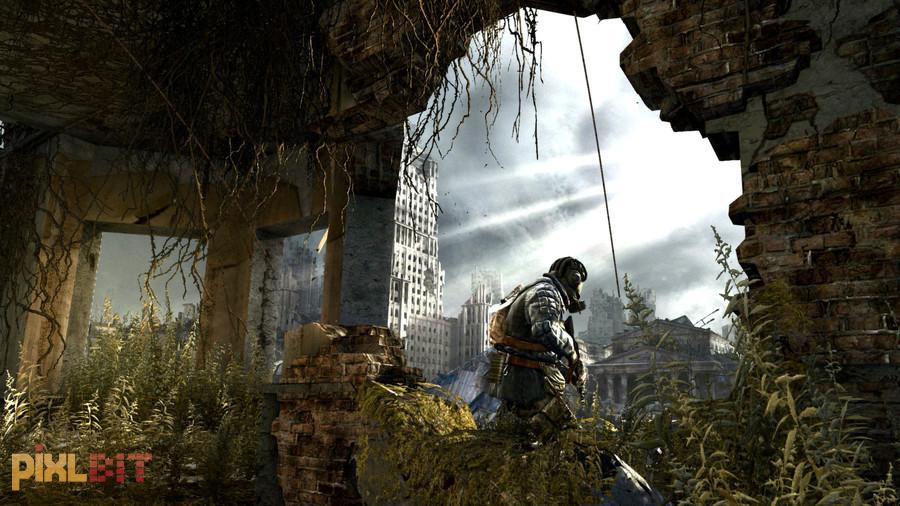
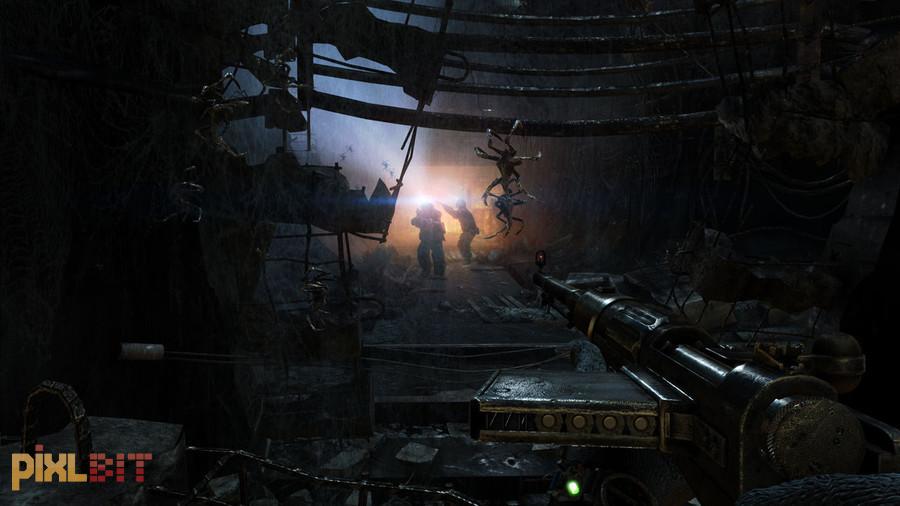





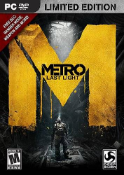

Comments